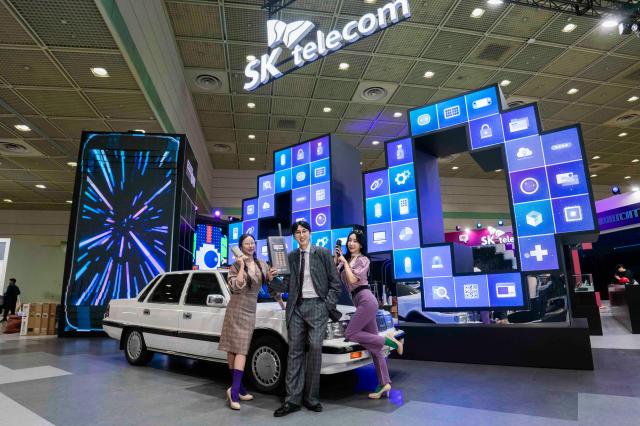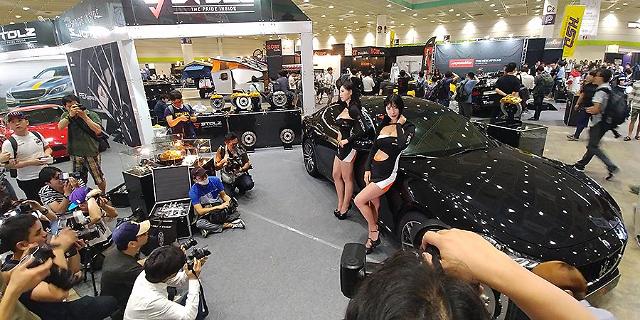
[Photo by Park Sae-jin]
Scores of enthusiastic car fans, armed with professional cameras, formed human walls around sexy racing models in skin tight outfits who eagerly promoted aftermarket car-tuning parts such as suspensions and dress-up parts.
Other fans stood in long lines, waiting for a chance to take smartphone selfies while dozens of car mania with serious faces were seen looking around admiringly or carefully reading brochures handed out by booth operators.
"I came here to take photos of racing models and check out the new aftermarket products," said a businessman surnamed Kim from the southern port city of Busan who used his holiday from work just to visit the annual "SEOUL AUTO SALON 2017", the only car tuning and aftermarket motor show in South Korea.
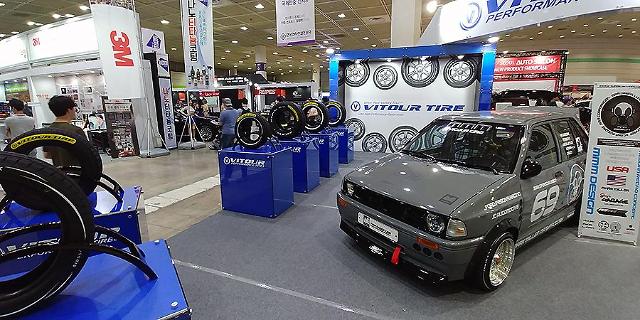
[Photo by Park Sae-jin]
Spotlessly polished cars were on display in an enormous exhibition hall filled with more than 150 booths at COEX, a conference and exhibition complex located in the heart of Seoul's southern finance and culture hub.
This year's event was different from previous shows because companies promoting electronic parts such as black boxes, parking assistants and lightings were hard to find. Instead, the air was filled with heavy thuds and loud beats of woofers.
The only electronics aftermarket section introduced this year displayed AVN (Audio, Visual and Navigation) infotainment systems, capable of data connection, underlining a visible change in South Korea's fledgling car-tuning market.
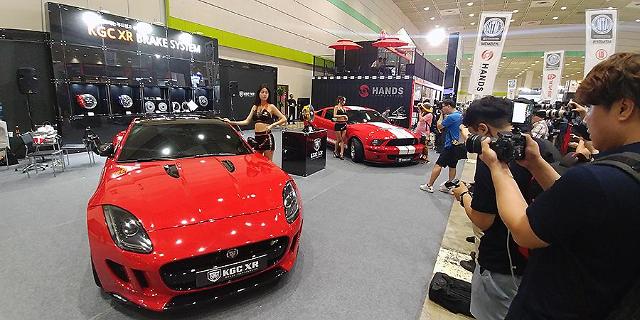
[Photo by Park Sae-jin]
"It's because carmakers such as Hyundai, Kia and Chevrolet have jumped into the aftermarket industry from a few years ago," Koo Won-ho, the president and top organizer of the show, told Aju News. "The South Korean car market is the fifth largest in the world but its aftermarket including tuning parts and car-care products has not grown much."
The chronicle of SEOUL AUTO SALON, which started in 2003, provides clues to how the car industry has changed during the last 15 years. "The government's regulation and the intensified challenges from large conglomerates," Koo said, blaming government restrictions for holding back growth.
"For a decade, the public perception about the aftermarket has changed slowly," he said.
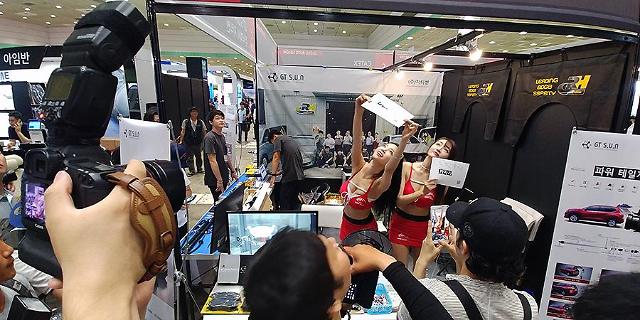
[Photo by Park Sae-jin]
US car tuning and aftermarket firms self-certify that their products meet federal regulations and performance requirements. They don't have to provide data, though state agencies can investigate to see whether their products meet the regulations. New rules have been issued for aftermarket conversions to help reduce costs.
In South Korea, aftermarket firms should have their products certified in a complicated process that requires a series of tests. Fees range from one million won (890 US dollars) to 10 million won to have a product certified. This is seen by small firms as the main obstacle hampering growth. If a muffler company wants to have six muffler models, exclusively manufactured for Hyundai Avante, certified, it has to pay several thousand dollars in obligatory fees altogether.
Big carmakers have become a deadly threat because they just started providing genuine parts for AVN systems, black boxes and parking-assistant cameras. Consumers install genuine parts as options. Hyundai's "TUIX" offers consumers with advanced body kits and performance upgrades while Kia released its high-performance fast-back sedan "Stinger" to compete with foreign models.
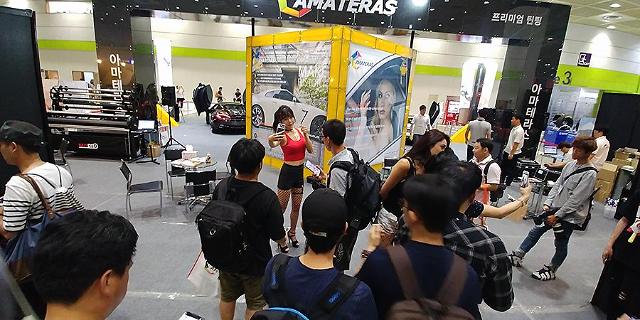
[Photo by Park Sae-jin]
"The tuning parts appeal to consumers with reasonable performance and price," said Koo. "They are very cost-effective thanks to the power of mass-production, whereas aftermarket products are slightly expensive because they are normally produced in small numbers by small companies," he said, complaining that small aftermarket firms are losing their ground.
Consumers' attention has also shifted from performance-enhancing parts to car-care products. As a result, the number of car-care and dress-up aftermarket firms participating in the show is increasing every year while performance-enhancing parts are not popular.
"Ten years back, people felt a strong need for performance parts simply because cars weren't that good. Now, home-made cars are good enough to match foreign brands," Koo said. The growth of the aftermarket industry will affect the car industry itself, he said, adding its synergy effect will be great enough to boost South Korea's reputation as a strong contender in the international car industry.


